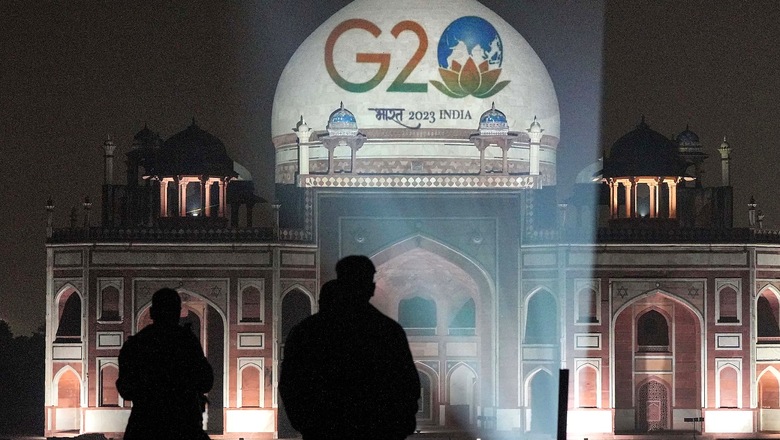
views
India began its year-long presidency of the Group of 20 (G20) on 1st December, at a time when the world is facing great geopolitical turmoil and uncertainty owing to the pandemic and the Ukraine war. During its term, India will hold more than 200 meetings across some 50 cities involving ministers, officials, and civil society, leading up to a marquee summit in the capital New Delhi in September 2023. In this light, there arise questions regarding the significance of G20 as a forum and what it really means for India to assume its presidency.
Historically, the leaders of G20 countries cutting across various continents and the European Union first met to find solutions for the severe financial crisis that was witnessed by the Southeast Asian economies in the late 1990s. Since then, every year the leaders meet annually to address serious global economic challenges. Initially, the forum was restricted to the finance ministers and central bank governors and was upgraded in 2007 to include heads of state and governments.
Since the beginning, the G20 summit has passed different resolutions to protect the global economy. The question arises — are these resolutions binding or what are the consequences if a state violates these resolutions? From an international law perspective, Article 38 of the International Court of Justice (ICJ) Statute spells out that there exist primary and secondary sources of international law. The primary sources are the treaty, customary principle of international law, and general principles of international law. All these laws are binding upon the state parties. Along with these judicial decisions, the writings of highly qualified publicists are considered secondary sources of international law. The G20 summits’ resolutions do not fall under any category of the above-mentioned sources. They are neither treaties nor customs nor general principles of international law.
Thus, the G20 resolutions are soft international law in nature without having any binding force. Though they are not binding, these resolutions do have a high compliance rate compared to those provisions that bind the state parties. As a result, the resolutions of G20 countries can be referred to as unitary or joint declarations of a few groups of countries. Such declarations have been validated by the ICJ in certain cases, where it has opined that in different situations, the unitary declarations are considered a source of law in international law, provided that the state declares with an intention to abide by the same.
The next G20 Summit is going to take place in New Delhi in 2023. The slogan given by the government for the summit is “One Earth, One Family, and One Future” to make it inclusive, ambitious, action-oriented, and decisive. As per the Prime Minister, what India wishes to achieve is a fundamental mindset shift, to benefit humanity with an aim of achieving healing, harmony, and spreading hope for establishing a human-centric globalisation.
What needs to be understood is that although India is the largest democracy and has contributed to the establishment of international peace and security in the past, the challenges of the present geopolitical world are different and it needs to be seen whether the motto of “One Earth, One Family and One Future” is possible or not.
Even though the government has laid out a blueprint of achieving the above-said targets through spreading sustainable and environmentally friendly lifestyles, depoliticising the global supply of food, fertiliser and medical products, having honest conversations among powerful countries on risks posed by weapons of mass destruction and enhancing global security, the challenge ahead needs an unwavering and sustained path.
To be known as a superpower, India must make a significant mark for itself in the international community and must be regarded as one who takes the lead and guides other countries to achieve its aim of a place in the decision-making councils of the world. Such an approach would enable it to achieve its foreign policy objectives of becoming a developed country, removing the colonial mindset through multilateralism, protecting heritage, achieving unity and integrity, and fulfilling its duties and responsibilities towards the international community as expressed by the foreign minister at the United Nations General Assembly (UNGA).
In this light, the presidency of G20 is especially significant given the changing geopolitical dynamics with the rise of China, Russia’s strategic convergence with China, the United States’ indeterminate Indo-Pacific policy stance and maintaining a multipolar Asia paradigm rather than a zero-sum alliance system.
Abhinav Mehrotra is Assistant Professor, OP Jindal Global University; Biswanath Gupta is Associate Professor, OP Jindal Global University. Views expressed are personal.
Read all the Latest Opinions here




















Comments
0 comment